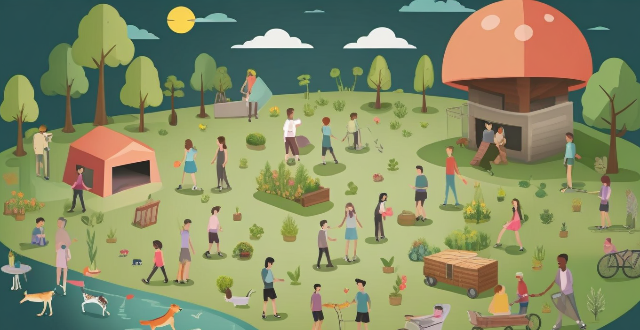A multicultural society is an environment where people from diverse cultural backgrounds coexist, sharing and respecting each other's beliefs, traditions, and practices. It benefits individuals by enhancing their cultural awareness, promoting personal growth, and providing career opportunities. For communities, it promotes social cohesion, economic prosperity, cultural exchange, and improved public services. Overall, multicultural societies create a more harmonious and prosperous world for all.

What is a Multicultural Society?
A multicultural society is an environment where people from diverse cultural backgrounds coexist, sharing and respecting each other's beliefs, traditions, and practices. It is characterized by a rich tapestry of languages, religions, ethnicities, and customs that contribute to the overall social fabric of the community. In such societies, there is an emphasis on inclusivity, tolerance, and mutual understanding among different cultural groups.
How Does It Benefit Individuals and Communities?
For Individuals:
1. Enhanced Cultural Awareness: Living in a multicultural society exposes individuals to various cultures, broadening their perspectives and increasing their cultural awareness. This exposure helps them develop a deeper understanding of different cultures and appreciate the diversity that exists within our global community.
2. Personal Growth: Interacting with people from diverse backgrounds can challenge one's beliefs and values, fostering personal growth and development. It encourages individuals to question their assumptions and biases, leading to greater self-awareness and empathy.
3. Career Opportunities: Multicultural societies often have vibrant economies with numerous job opportunities in industries such as tourism, international trade, and diplomacy. Being able to communicate effectively with people from different cultures can be a valuable skill for professionals seeking career advancement in these fields.
For Communities:
1. Social Cohesion: Multicultural societies promote social cohesion by encouraging dialogue and cooperation between different cultural groups. This fosters a sense of belonging and shared identity among community members, reducing tensions and conflicts that may arise from cultural differences.
2. Economic Benefits: Diverse communities bring together a wide range of skills, knowledge, and experiences, which can lead to innovative solutions and creative ideas. This diversity can boost economic growth by attracting investment, fostering entrepreneurship, and promoting tourism.
3. Cultural Exchange: Multicultural societies provide opportunities for cultural exchange, allowing communities to learn from each other's traditions and practices. This exchange enriches the overall cultural landscape, contributing to the preservation and celebration of cultural heritage.
4. Improved Public Services: Recognizing the needs of diverse populations enables governments and organizations to provide more effective public services tailored to the specific requirements of different cultural groups. This ensures that all members of the community have equal access to essential resources and support.
In conclusion, multicultural societies offer numerous benefits for both individuals and communities. They promote cultural awareness, personal growth, career opportunities, social cohesion, economic prosperity, cultural exchange, and improved public services. By embracing diversity and fostering inclusivity, multicultural societies create a more harmonious and prosperous world for all.